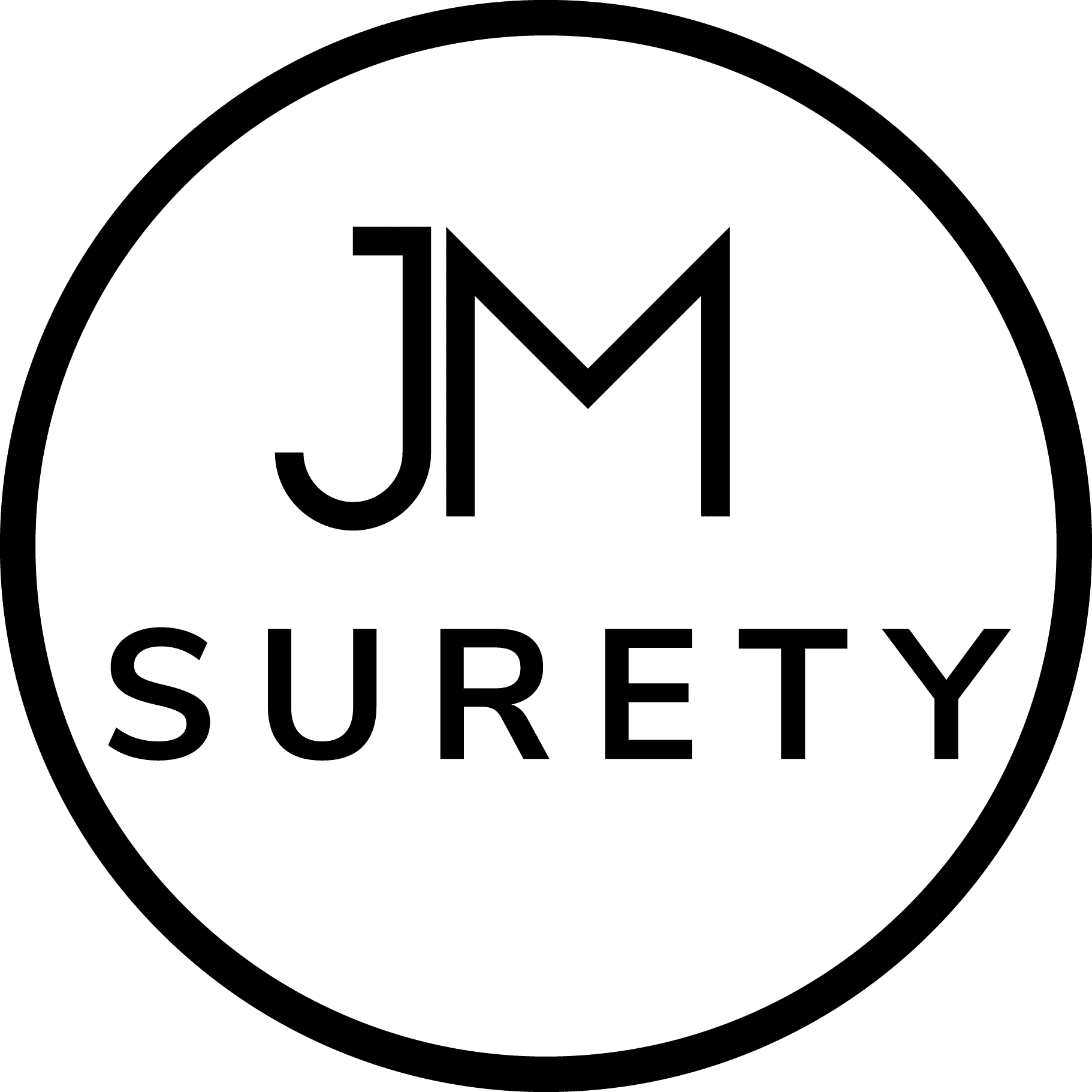Building client trust is essential for small business owners in service industries, such as cleaning, home healthcare, or private security. In competitive markets, customers want assurance that the people entering their homes or facilities are trustworthy and accountable. One way to establish this trust is by securing a business service bond. A business service bond can offer financial protection to your clients in certain cases, such as employee theft or other dishonest acts while on the job. Clients today are more informed and risk-aware, especially when environmental issues—like how rain causes mold—can increase property concerns. Events such as heavy rainfall and high humidity levels often lead to mold growth, making it critical for property owners to work with bonded service providers who are reliable and professionally accountable. This blog explores what a business service bond covers, why clients expect service providers to be bonded, and how it can give your business a competitive edge.
Understanding What a Business Service Bond Covers
Employee Dishonesty and Theft Protection
A business service bond is a type of surety bond that protects your clients, not your business. It offers financial coverage to the client if one of your employees steals from them or engages in dishonest behavior while on the job. This protection is especially important in industries where employees can access private homes, medical facilities, or secure commercial sites. For example, if a home healthcare worker is accused of stealing personal items during a visit, the business service bond can reimburse the client. Similarly, a janitorial service that performs after-hours cleaning in an office building can give clients peace of mind, knowing any losses due to employee dishonesty are covered. In industries where trust is a top priority, the bond helps demonstrate that your business takes client security seriously.
Limitations of a Business Service Bond
It’s important to note that a business service bond is not insurance for the business itself. It only protects the client from financial harm caused by specific acts, such as theft by an employee. It does not cover damage caused by accidents, general liability, or issues like mold growth due to poor maintenance or structural problems. Consult with a licensed bonding or insurance provider to understand your specific bond’s full scope and limitations. Many clients—especially those who understand the risks associated with moisture and indoor mold—want to work only with bonded providers. In cases where rain has led to water damage and there’s concern about mold inspection after rain, clients are more likely to hire a bonded cleaning company that stands behind its employees.
Why clients often require bonded service providers
Building Trust Through Transparency
In industries where employees work directly in client homes or sensitive environments, transparency is not just valued—it’s expected. Clients want to know that the businesses they hire are taking steps to protect their property and well-being. A business service bond provides that reassurance. When customers are faced with property concerns—such as humidity and mold growth after rainfall or moisture-related damage—they are more likely to choose bonded companies. Bonded status signals that the business is prepared to take responsibility for employee behavior and client protection. It also shows that the company has properly secured a bond from a licensed surety provider. Promoting your business as bonded helps eliminate uncertainty, making it easier for clients to trust your team with access to their space and belongings.
Meeting Bid or Contract Requirements
For many business owners, being bonded is not just about trust—it’s about meeting qualifications. Larger clients, including government agencies, healthcare facilities, and corporate offices, often require vendors to carry a business service bond to be eligible for contract work. Service providers may be disqualified from bidding on certain jobs without a bond. This is especially common in sectors where safety, security, and property conditions matter—such as when a client is looking for post-rain cleanup services and is concerned about potential mold issues. Understanding how rain causes mold and responding with bonded services can be a key differentiator in these situations. Being bonded opens doors to larger contracts and long-term client relationships, giving small businesses a significant edge over competitors who lack the same credentials.
How promoting your bond can differentiate you from competitors?
Bonding as a Marketing Tool
For service-based businesses, being bonded is more than a compliance step—it’s a strategic marketing advantage. Including “bonded and insured” in your advertising, website, and proposals helps build instant credibility with potential clients. When customers see that your business is bonded, they perceive a higher level of professionalism and accountability. This distinction can influence a client’s final hiring decision in competitive industries like cleaning, home healthcare, and security services. Trust becomes the deciding factor when multiple businesses offer similar pricing and services. A business service bond signals that your business has taken steps toward enhancing client trust and their property. This is especially important when clients are concerned about risks like moisture and indoor mold following rain events. By showcasing your bonded status, you position your business as a reliable choice for clients with sensitive property concerns.
Reassurance in Risk-Prone Industries
Clients in industries that deal with potential environmental hazards—such as water damage or post-rain cleanups—want accountable service providers. Many clients know that how rain causes mold is not always visible immediately. Water can seep into walls, flooring, or HVAC systems, leading to mold that may not show up for weeks. A bonded business offers reassurance that its employees will act responsibly, especially when working in environments that could be impacted by hidden moisture. For instance, a cleaning company called to a home after flooding or heavy rainfall can stand out by being bonded. Clients will view this as a sign that the business takes risk seriously and is prepared to resolve any issues that arise during or after service. Even if your service doesn’t directly involve mold inspection after rain, simply operating in affected areas makes it critical to show that your employees can be trusted in high-stakes situations. Bonding helps reinforce that trust.
Mold Risks and the Value of Trustworthy Service Providers
How Rain Causes Mold and Why It Matters to Your Clients
When rainwater enters a property through leaks, foundation cracks, or unsealed windows, it creates the conditions for mold to develop. Many clients don’t realize that even a small amount of water intrusion can lead to mold growth if not properly addressed. This is especially true in humid climates, where excess moisture lingers in the air and absorbs into porous materials. Understanding how rain causes mold helps service providers communicate the importance of timely and professional cleanup. Clients expect that any team working in their home or business—particularly after heavy rain—will take precautions to avoid contributing to mold issues. Bonded businesses are seen as more trustworthy because their employees are held accountable for their actions. Whether you’re a cleaner restoring a flooded basement or a home healthcare worker operating in damp environments, your clients need assurance that your team will follow procedures that minimize risks.
Humidity and Mold Growth: Why Professionalism Counts
In many homes and buildings, humidity and mold growth go hand in hand. When indoor humidity rises above safe levels, it can accelerate the spread of mold on surfaces like drywall, ceilings, and wood trim. Clients facing these conditions often seek out bonded professionals, knowing that they have an extra layer of protection. For example, a bonded cleaning service tasked with post-storm remediation has a better chance of winning the job than an unbonded competitor. The client views the bond as evidence of professionalism, reliability, and commitment to properly handling potential hazards. Bonding also demonstrates that your company values accountability—clients pay close attention when they feel their property is at risk.
Mold Inspection After Rain and Your Competitive Edge
Although most service businesses do not perform mold inspections directly, clients may still expect some knowledge of the risks that follow water exposure. After heavy rain, clients frequently schedule a mold inspection after rain to assess any damage. Bonded businesses stand out during this process because they signal to clients that they take their responsibilities seriously. A cleaning or maintenance team that understands the risks of moisture and indoor mold and communicates its bonded status will more likely earn client trust. This trust leads to repeat business, referrals, and higher-value contracts.
Promoting Your Business Service Bond to Build Client Confidence
Communicating Your Bonded Status Effectively
Once your business is bonded, it’s important to make that information visible across all customer-facing platforms. This includes your website, marketing materials, social media profiles, and job proposals. Use clear language such as “Bonded and Insured” or “Protected by a Business Service Bond” to help clients understand that your company prioritizes accountability and client protection. Ensure your team is trained to mention the bond when speaking with potential clients, especially in property entry or post-weather cleanups. When a client is already concerned about how rain causes mold or ongoing moisture and indoor mold, learning that your company is bonded can reassure them to move forward with hiring you. Providing simple explanations and linking to your bonding provider’s page (when appropriate) can help answer questions and reinforce credibility.
Real-World Scenarios: Client Trust in Action
Consider a home healthcare business where staff regularly visits elderly clients in private residences. If a client becomes concerned about missing items, the fact that the business is bonded can help provide reassurance and facilitate the resolution process fairly and transparently. Similarly, a cleaning company called in after a flood may be asked about mold inspection after rain or how they prevent humidity-related problems. Being bonded helps demonstrate a professional commitment to responsible conduct. Clients remember providers who complete the job and carry safeguards to protect them. In service industries where trust is the foundation of every job, a business service bond can be the key to long-term success.
Final Thoughts: Aligning Risk Management with Client Trust
Why a Business Service Bond Is a Strategic Advantage
In competitive service industries like cleaning, home healthcare, and security, trust is not optional—it’s a requirement. Clients want more than just skill; they want the assurance that their property, privacy, and well-being are protected. A business service bond helps meet that expectation by offering financial protection against employee dishonesty and building a visible layer of credibility. As concerns around how rain causes mold, humidity and mold growth, and general moisture and indoor mold increase, clients are becoming more selective about who they allow into their homes and facilities. They want service providers who are both competent and accountable. By securing a business service bond and promoting it properly, small businesses can differentiate themselves, meet contract requirements, and win the confidence of even the most cautious clients. Bonding isn’t just a formality—it’s a growth tool that strengthens your brand and supports long-term client relationships. Disclaimer: This content is provided for informational purposes only and does not constitute legal, insurance, or financial advice. Consult with a licensed attorney or bonding professional regarding your situation or contractual requirements.
Ready to Gain a Competitive Edge with a Business Service Bond?
Let JM Surety help you explore bonding options tailored to your industry. We do not offer legal advice, but we can walk you through the bonding process and help you secure a solution that enhances your client trust. Contact JM Surety today at (972) 848-0820 to learn how to get bonded quickly and affordably.

